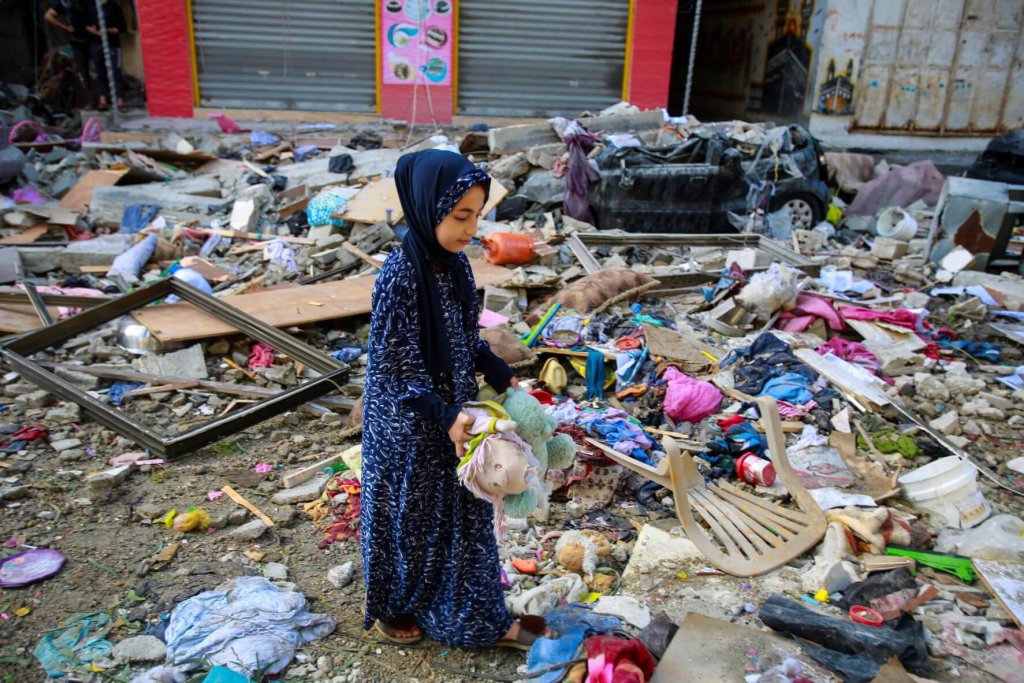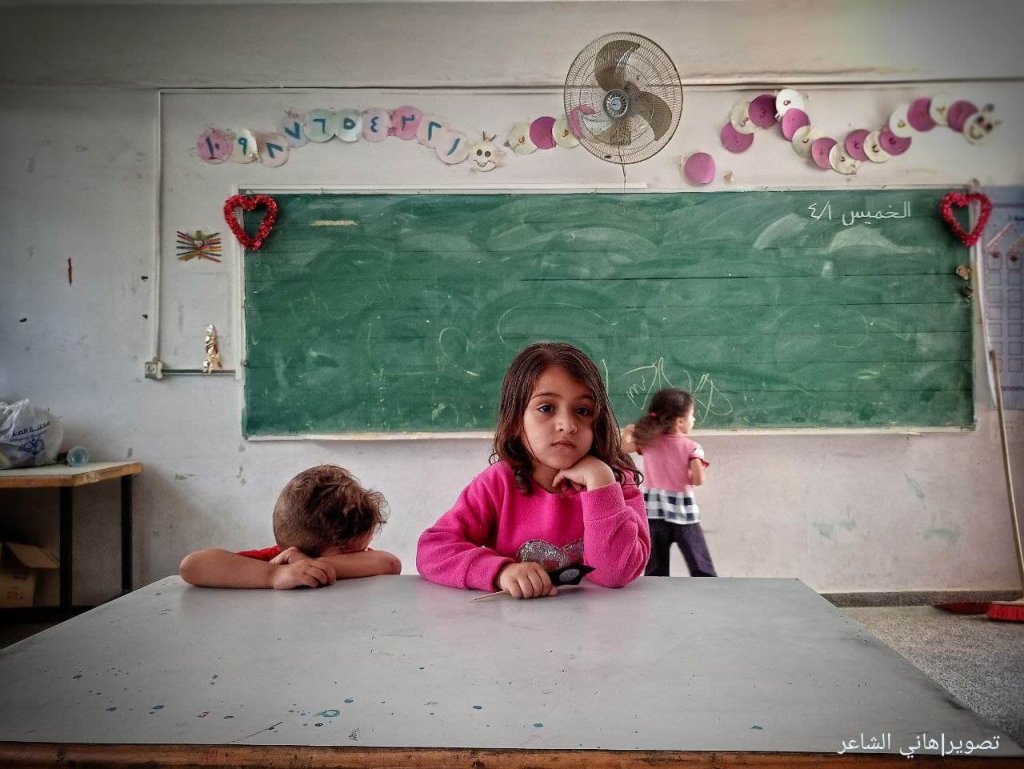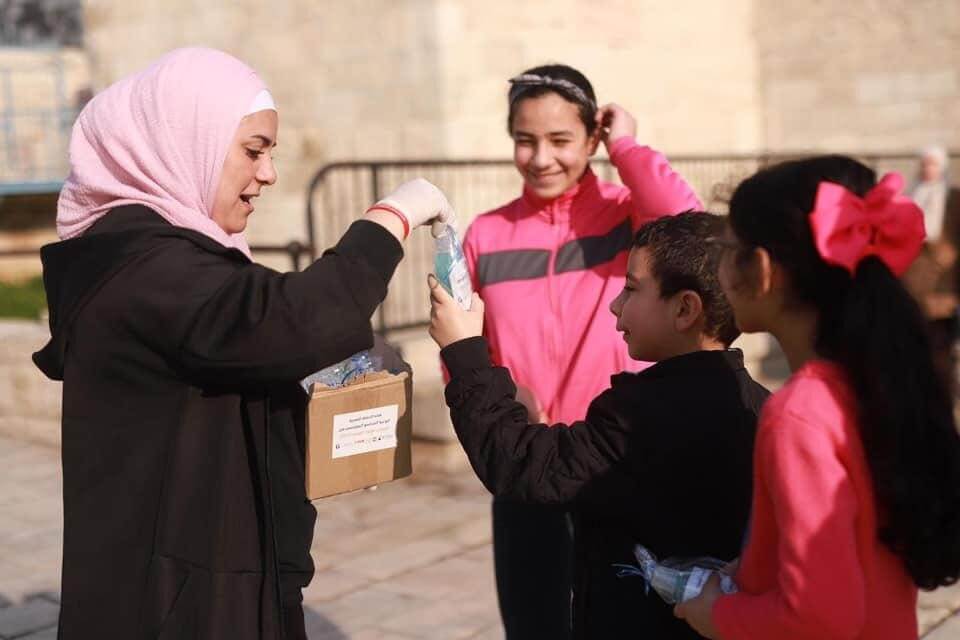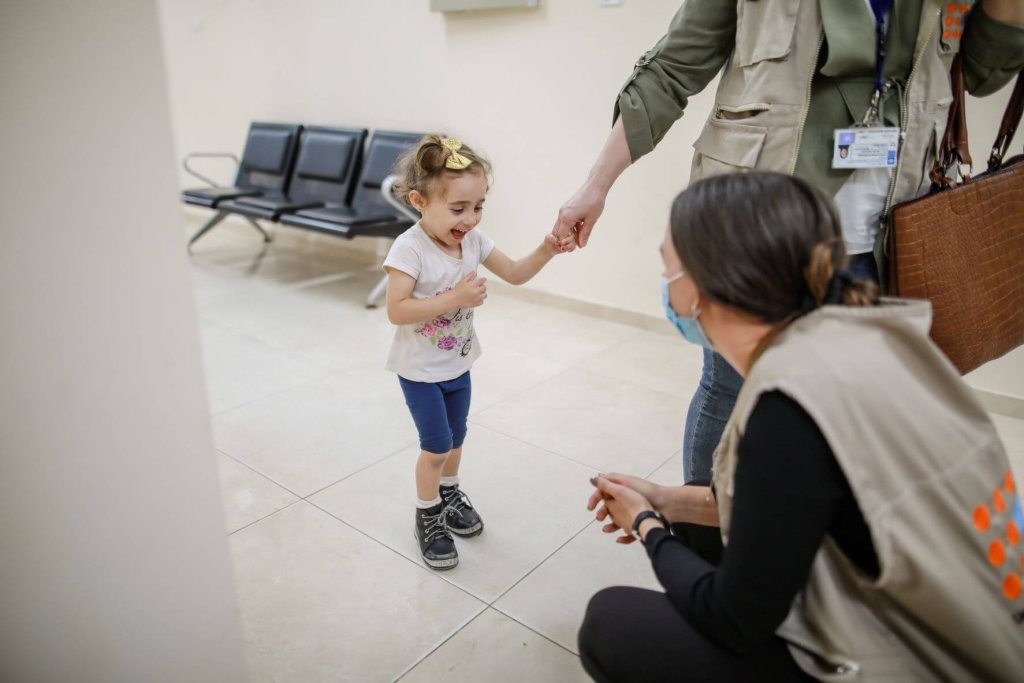Coding in Palestine: How Tech Education Keeps Girls Safe and Expands Opportunities

In May 2021, hostilities changed the lives of many in Palestine. Hundreds lost their lives, thousands were displaced from their homes, and millions are living in constant fear. But, despite the uncertainty brought on by conflict and coronavirus, there is hope.
About one-quarter of Palestinians are young people. Despite growing up in a challenging environment, they do what they can to improve their lives and communities. Code for Palestine, a joint program operated by PalTel Group Foundation and Code.X, is helping young people reach their potential. Through a tech education in computer science and design thinking, Code for Palestine hopes to empower students to become agents of change in their communities.
The Risks of Not Having Access to Education

Sima Alami, a Youth Program Officer at UNFPA’s Palestine office, explains that education for girls is especially important. Without access to education opportunities, she says girls are exposed to, “risky behavior including violence, substance abuse, limited choices, and early marriage.” According to the most recent numbers, 15% of girls are married before their 18th birthday in Palestine. Alami adds that, “Poor access to comprehensive education and health services limits their opportunities and abilities to advance in society.” Living in poor or isolated communities only increases the likelihood that girls will face barriers to access sexual and reproductive health resources. Code for Palestine works to address such barriers in its tech education programs by explicitly including girls and underserved Palestinians.
Amna is a first-year medical student in Gaza and a graduate of Code for Palestine’s three-year program. She believes the program has been instrumental in her personal development. “Many choices I made in my life would have been so different if I had not joined Code for Palestine, especially when it comes to my self-confidence. I would not have involved myself in any outside activities or applied to scholarships.” Heba, another graduate, says that without Code for Palestine she, “might not have been the same Heba. I would not have been a fighter who chooses to pursue her passion no matter what obstacles might be faced.”
Gender Discrimination in Palestine

This confidence has been key. Palestinian women face extreme barriers to entering the workforce even though they enjoy relatively high rates of education. Only 20% of women in Palestine participate in the workforce. This is lower than the regional average and far lower than the global employment rate for women: 48%. Alami says this indicates that women, “struggle to convert their educational achievements into economic empowerment.” Part of the explanation for this phenomenon is discrimination.
Leyan received a tech education from Code for Palestine. Today, she is a Teacher’s Assistant and student in the University of Minnesota‘s Computer Engineering program. Despite her competence, she still faces gender discrimination. Leyan explains, “As a woman, unfortunately, I face a lot of implicit bias and mansplaining at university or the workplace. Normally people tend to believe that I won’t understand simple concepts or want to double-check my work. But, they would never do that when my male colleagues submit their work.”
However, because of the program, Leyan has developed resilience and confidence in her abilities. She said, “Never would I ever have thought that I’d have enough patience to force people to listen to me, but now I do.” Code for Palestine equipped Leyan, and other girls like her, with the skills and opportunities she needed to be successful in the workplace.
UNFPA’s Work in Palestine

At UNFPA, we are working with Palestine’s Ministry of Health and Ministry of Education to support girls’ access to education. We also support all young people’s access to sexual and reproductive health care, like family planning and support for survivors of violence. This work includes increasing access to comprehensive sexuality education and gender equality education.
The recent violence in Palestine has increased women and girls’ vulnerability to gender-based violence. It has also put 87,000 pregnant women at greater risk for life-threatening pregnancy and childbirth complications. Your support could make all the difference. Leyan says, “Palestinians are some of the most passionate kids you’ll ever meet. We lack the resources that give us a chance at success.” But, with your contribution, women and girls across Palestine will continue to have access to the sexual and reproductive health care they need. And, girls like Leyan, Heba, and Amna have the support they need to become the change-makers of their generation.
Special thanks to Alex Fu from Code.X for their instrumental support. Click here to learn more about Code for Palestine and their work with young Palestinians.
-Dana Kirkegaard